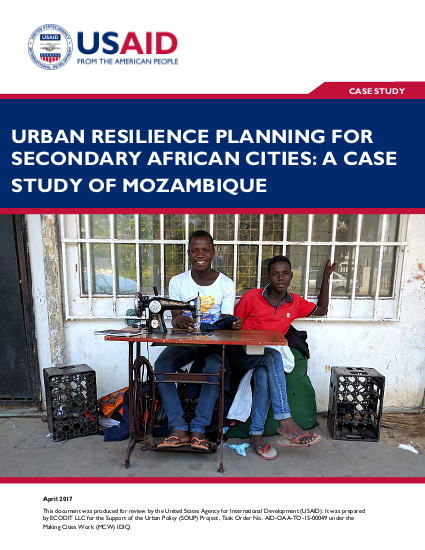
Much of Africa’s rapid urban growth is happening in towns and secondary cities that drive social and economic transformation. These secondary cities, especially those located along coasts, struggle to accommodate this rapid expansion, with many migrants moving to informal areas that are prone to a variety of man-made and natural environmental hazards. Building resilience in these secondary cities is important for achieving country-level development objectives as these cities form the link between rural areas and larger cities, and between traditional and industrialized economies.
This case study is based on an evaluation of USAID’s Mozambique Coastal City Adaptation Project (CCAP), a 5-year, $14.9M activity ending in 2018 that has worked in three cities. The case study supports implementation of USAID’s Sustainable Service Delivery in an Increasingly Urbanized World Policy (Urban Policy) which lays out four development principles to support sustainable urbanization:
- Ensuring Political and Financial Stability;
- Advancing Accountable Pro-Poor Service Delivery Models;
- Fostering Market Orientation and Public-Private Collaboration; and
- Supporting Municipal Resilience.
While these principles are interrelated, this case study focuses on the fourth principle of supporting municipal resilience.
Links
Resource collections
- UN Habitat - Urban Response Collection
- Urban Response - Urban Crisis Preparedness and Risk Reduction
- Urban Response Collection - Community Engagement and Social Cohesion
- Urban Response Collection - Economic Recovery
- Urban Response Collection - Environment and Climate Change
- Urban Response Collection - Housing, Land and Property
- Urban Response Collection - Urban Crisis Response, Recovery and Reconstruction
- Urban Response Collection - Urban Resilience